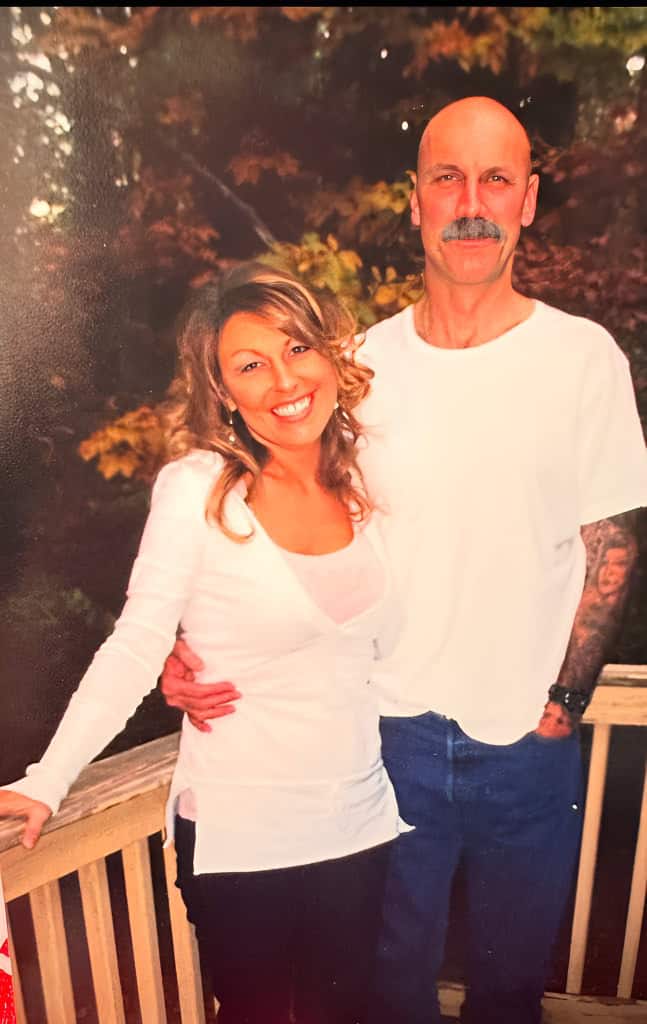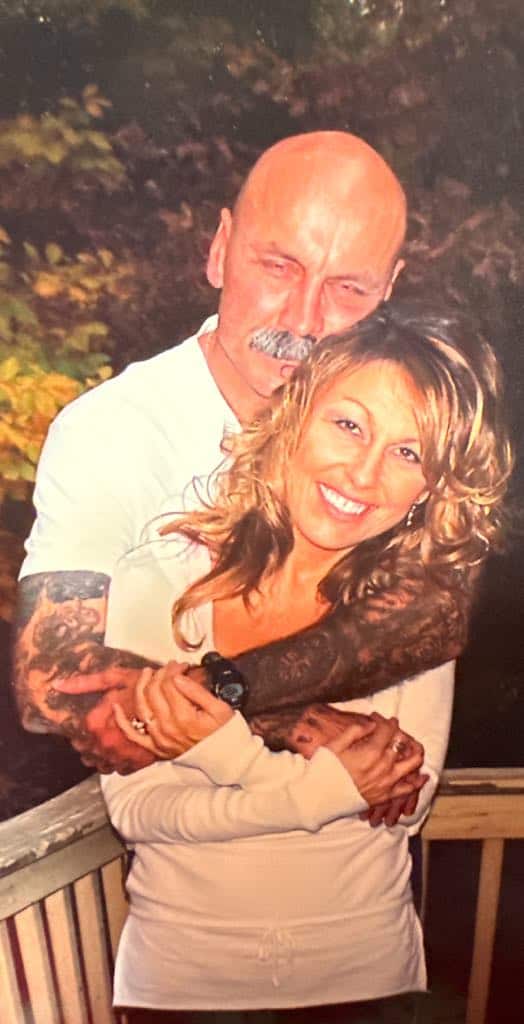On December 19, 2024, Teresa Laster Sisson received devastating news that shattered her world: her brother, Roy Mason Morris, had died. The news was shocking not only because of the loss but because Roy had passed away over a year earlier—on October 15, 2023—and no one from the Georgia Department of Corrections (GDC) had bothered to inform his family.
As Roy’s sister, Teresa has become his voice, determined to uncover the truth about his death and expose the systemic neglect that allowed it to happen. Her journey has been one of heartbreak, frustration, and resilience, as she navigates a labyrinth of conflicting reports, unanswered questions, and bureaucratic indifference.

Roy’s story is not just one of personal tragedy; it is a glaring indictment of systemic neglect, corruption, and dehumanization within Georgia’s prison system. From the lack of medical care that likely contributed to his death to the murky circumstances surrounding his burial, his case exemplifies the failures of a system meant to protect and rehabilitate.
For Teresa and her family, the pain of Roy’s death has been compounded by unanswered questions and a sense of betrayal. Why wasn’t his family notified? Why is there no death certificate or autopsy? And why does no one seem to know where Roy is truly buried? These questions are at the heart of a larger fight—not just for justice for Roy, but for systemic accountability and reform in Georgia prisons.
Roy Mason Morris’s story is a haunting reminder of the human cost of a broken system. It is also a call to action: to shed light on the dark corners of the GDC and to demand better for the countless lives caught in its grasp.
Roy’s Life and Humanity
Roy Mason Morris was more than an inmate—he was a beloved brother, uncle, and friend. Born into a loving family, Roy was adopted by his grandparents at the age of two and grew up alongside five siblings. He was the kind of person who brought joy wherever he went, always laughing, smiling, and finding ways to brighten the lives of those around him.
Roy’s talents and passions reflected his multifaceted personality. He was a gifted artist, drawing with a precision and creativity that could have led to a career in the arts. He loved music, movies, fishing, and even law books, which he studied with dedication—skills that, in another life, might have made him a lawyer. Family was everything to Roy, and he adored his six nieces and three nephews, often playing the role of the fun and protective uncle.

But Roy, like so many others, made mistakes. At 17, he was convicted of armed robbery after driving the getaway car in a crime that would alter the course of his life. Sentenced to 20 years in prison, he was released for a brief period, only to return after another charge that Teresa doesn’t fully understand. Despite his circumstances, Roy held his head high, maintaining his dignity and earning the respect and friendship of those around him, both inside and outside the prison walls.

One of Teresa’s fondest memories is of Roy’s laugh—infectious and full of life—and the way he always found something to be happy about, no matter the challenges he faced. Even in his letters and phone calls from prison, he rarely complained, choosing instead to focus on the positive. His kindness and resilience left a lasting impression on his fellow inmates, many of whom saw him as a friend and role model.
In their final conversation, just months before his death, Teresa heard something in Roy’s voice that she had never heard before: a deep weariness. He told her he was sick, mentioning what sounded like bronchitis or pneumonia, and that he wasn’t receiving proper care. “They don’t care,” he said about the prison staff. It was the last time she would hear his voice, and his parting words—“Don’t worry about me”—have haunted her ever since.
Roy Mason Morris’s life was not defined by his mistakes but by the love, kindness, and humanity he brought to those around him. His story is a stark reminder that behind every prison sentence is a person, a family, and a ripple effect of heartbreak that extends far beyond prison walls.
The Events Leading to His Death
The circumstances surrounding Roy Mason Morris’s death are as troubling as they are unclear. What is known is that he became ill while incarcerated at Dooly State Prison and was transported to Crisp Regional Hospital in late September 2023. soon after, on October 15, 2023, Roy passed away. Beyond these basic facts, the details are murky, marred by inconsistencies, conflicting reports, and a disturbing lack of transparency from the Georgia Department of Corrections (GDC).
In their last phone call, Teresa vividly recalls her brother sounding uncharacteristically weak. He mentioned feeling sick, describing symptoms resembling bronchitis or pneumonia, and admitted that he wasn’t receiving adequate medical care. Roy’s words—“They don’t care”—were a damning indictment of the prison’s neglectful healthcare system, and a chilling prelude to what was to come.
After months of silence from Roy, Teresa and her family began calling the GDC, desperate for information. Despite having Roy’s identification number, the system showed no record of him. After still more months they finally reached someone who could provide answers, they were hit with a devastating revelation: Roy had not only died, but he had died 14 months earlier. The realization was like a freight train hitting full force—their beloved brother, who they thought was alive, had been gone for over a year, and no one had bothered to tell them.
The details of his death only deepened the family’s anguish. According to reports from a coroner and an insider, Roy had sustained a cracked skull and a concussion. The timeline of these injuries remains unclear, and no autopsy was performed to determine the exact cause of death. Adding to the confusion, the GDC claimed Roy died of a “disease,” though they could not specify which one.
Even Roy’s burial has been shrouded in uncertainty. The prison initially informed Teresa that Roy was buried in the prisoner cemetery with in the 2000 grave markers. However, an insider contradicted this, stating that 10 unmarked graves were added to the cemetery in 2023, and one of them might be Roy’s. Later an administrator said his grave marker was “1085.” To this day, the family cannot confirm whether Roy’s grave is properly marked or if he was buried at all.
The lack of a death certificate has only compounded the family’s pain. Without it, they have been unable to access Roy’s medical records or seek accountability for what happened. Efforts to obtain this vital document have been met with bureaucratic indifference and delays, further fueling suspicions of a cover-up.
Roy’s medical records, which Teresa obtained through persistence, revealed a grim picture of his final days. Hospital staff detailed that Roy suffered from untreated lung cancer, congestive heart failure, and diabetes. He was severely malnourished, fragile, and visibly emaciated. Despite his critical condition, the prison reportedly failed to ensure proper treatment, leaving him in a state that one hospital staff member described as “beyond neglected.”
When Roy was admitted to Crisp Regional Hospital, decisions made by the prison administration sealed his fate. The warden allegedly refused to authorize resuscitation or life support, even when hospital staff recommended transferring him to a facility better equipped to handle his care.
Roy’s story highlights a deeply troubling pattern within the Georgia prison system: inmates falling through the cracks, denied the dignity and care owed to them even in death. For Teresa and her family, the fight for answers is far from over, but the systemic failures that led to Roy’s death are undeniable.
The Aftermath and Family’s Struggle
For Teresa and her family, the devastation of learning about Roy’s death was only the beginning. The Georgia Department of Corrections (GDC) provided no closure—no explanation for the 14-month delay in notification, no death certificate, and no clarity about the circumstances of his passing. Every attempt to uncover the truth led to more questions and a deeper sense of betrayal.

The burial confusion was compounded by the absence of a death certificate. Without it, Teresa couldn’t access Roy’s medical records or seek accountability for his death. After months of pressing for answers, a funeral home director abruptly offered to create a death certificate—14 months after Roy’s passing—raising even more questions about why it wasn’t issued earlier and whether it would reflect the truth.
Adding to the family’s anguish were disturbing revelations about the final days of Roy’s life. An investigator working with Teresa uncovered that Roy had sustained a cracked skull and a concussion, injuries that likely contributed to his death. Despite these findings, the GDC provided no explanation for how Roy sustained these injuries or why he wasn’t given adequate medical care.
The lack of transparency extended to every corner of the investigation. The family discovered that Roy had been taken to Crisp Regional Hospital shortly before his death, but even the hospital staff refused to share details about his condition. Teresa also learned that the coroner responsible for Roy’s case had a history of procedural failures, leaving her to wonder if crucial evidence had been overlooked or intentionally ignored.
Confusion and contradictions continued even after Roy’s death. According to a supervisor at the hospital, the warden claimed that no family members could be contacted—a blatant falsehood, given that Teresa’s phone number was on file.
The story surrounding Roy’s body was equally troubling. A funeral home director, initially unnamed, later admitted to handling Roy’s remains after being contacted by the warden. This conflicted with earlier accounts that a Crisp County coroner was involved, leaving Teresa questioning the chain of custody and whether her brother’s body was truly buried where the GDC claimed.
The emotional toll of these unanswered questions has been immense. Teresa describes feeling as though she’s been “punched in the stomach” every time new information comes to light. Her health, already fragile, has suffered under the weight of the fight for justice. Yet, she refuses to give up. “This is my brother,” she says. “He was supposed to come home, and now he’s gone. I need to know why.”
For the Morris family, the aftermath of Roy’s death has been defined by a relentless pursuit of the truth. But their struggle also sheds light on a much larger issue: the systemic indifference and dysfunction within the Georgia prison system. As Teresa continues her fight, her story echoes the voices of countless families left in the dark, demanding justice for their loved ones and accountability from a system that so often fails them.
Systemic Corruption and Neglect
Roy Mason Morris’s death is not an isolated incident but part of a disturbing pattern within the Georgia Department of Corrections (GDC). His story highlights the systemic corruption, neglect, and dehumanization that have turned Georgia’s prisons into places of suffering and despair rather than rehabilitation.
A Healthcare System in Collapse
At the core of Roy’s story is the failure of the prison’s healthcare system. Reports suggest that, at the time of his illness, Dooly State Prison had no medical staff on-site due to gaps in contracted services. Roy’s symptoms—potentially pneumonia or a brain bleed from his injuries—went untreated for days, and he was only taken to Crisp Regional Hospital after his condition became critical. This lack of timely care is emblematic of a broader issue within the GDC, where inmates routinely report being denied basic medical attention.
The consequences of this neglect are fatal. Roy’s injuries—a cracked skull and concussion—raise serious questions about how he was treated, or mistreated, during his final days. Teresa learned through insider accounts that the GDC frequently delays or denies medical care, sometimes resulting in preventable deaths. These failures reflect a system that prioritizes cost-cutting over human lives.
Contraband, Violence, and Gangs
The corruption within Georgia prisons extends far beyond healthcare. Roy himself told Teresa about the widespread contraband—drugs, alcohol, and weapons—smuggled in by guards. Inmates are often left to fend for themselves in environments ruled by gang violence, with little to no intervention from staff.
Roy recounted witnessing brutal beatings and even murders, describing one incident where a man was stabbed to death in his bunk while he slept. He feared for his life every day, knowing that reporting anything would make him a target. “The guards don’t care,” he told Teresa. “They just look the other way.”
The revelations from Roy’s medical records and postmortem handling raise chilling questions about corruption within the Georgia prison system. Teresa recounted allegations from insiders that the GDC profits from harvesting organs of inmates nearing death. While these claims remain unverified, the lack of transparency and the systemic disregard for inmates’ humanity lend credibility to such accusations.
For Teresa, the uncertainty surrounding Roy’s burial is the final insult. “Who’s to say my brother is even in that ground?” she asks, her voice a mix of grief and anger. This lack of closure underscores the dehumanization inherent in a system designed to strip away dignity, even in death.
Financial Exploitation of Inmates
The GDC operates like a profit-driven machine, profiting from inmates while failing to protect or rehabilitate them. Teresa noted how the system incentivizes keeping inmates incarcerated for as long as possible, even denying parole to those who are eligible. Roy was supposed to be released after serving his sentence, but repeated delays kept him behind bars until his death.
These practices are not just cruel—they are calculated. The longer inmates remain in prison, the more money the system generates through federal funding, state budgets, and private contracts. This financial exploitation is particularly egregious in cases like Roy’s, where inmates are denied the care and dignity they deserve, even in death.
The Cost of Indifference
Perhaps the most damning aspect of Roy’s story is the systemic indifference that allowed it to happen. From the lack of notification to his family to the inconsistencies surrounding his burial, every step of the process has been marked by a stunning disregard for basic humanity. Teresa’s experience underscores a harsh reality: in Georgia’s prisons, lives are often treated as disposable.
Roy’s story is one of many. Across the state, families are grappling with similar tragedies, fighting against a system that seems designed to obscure the truth rather than reveal it. The GDC’s failures are not isolated incidents but symptoms of a deeply broken institution—one that prioritizes profit and self-preservation over justice and human dignity.
Teresa’s Call for Change
For Teresa Lester Sisson, the fight for justice is far from over. What began as a quest for answers about her brother’s death has evolved into a mission to expose the systemic failures of Georgia’s prison system and demand meaningful reform.
A Voice for Roy
Roy’s story became a rallying cry for Teresa, who refuses to let his life be reduced to a statistic. “This is my brother,” she says. “He was a human being, not just an inmate.” Her determination to uncover the truth and hold those responsible accountable has driven her to tirelessly contact wardens, coroners, investigators, and advocacy groups, even as the process takes an emotional and physical toll on her health.
But Teresa’s fight is not just for Roy—it’s for every inmate who has been neglected, abused, or silenced within the Georgia Department of Corrections. “This could be anyone’s loved one,” she says. “If we don’t stand up, nothing will change.”
Exposing the System
Teresa’s advocacy has brought her into contact with others who have experienced similar tragedies. She has joined forces with advocacy groups, shared her story with the media, and reached out to lawmakers in an effort to bring attention to the inhumane conditions within Georgia’s prisons. Each new revelation about contraband, understaffing, gang violence, and medical neglect strengthens her resolve to demand change.
In one particularly poignant moment, Teresa described how a pastor reached out to her with a prophecy, confirming what she already suspected: her brother was murdered. This spiritual affirmation, coupled with the growing body of evidence, has only deepened her conviction that the truth will come to light.
Demanding Accountability
Teresa’s ultimate goal is accountability—not just for those directly responsible for Roy’s death but for the system as a whole. She has called for:
• Mandatory family notification for inmate deaths.
• Independent investigations into suspicious inmate deaths.
• Oversight and reform of prison healthcare services.
• Greater transparency and public accountability within the GDC.
She has also begun exploring legal avenues, working with attorneys to push for justice. Despite the many barriers she faces, Teresa remains steadfast: “I will not stop until the truth is out, and changes are made. Roy deserves that much, and so do all the others who have been forgotten.”
A Message to Others
Teresa’s story is a powerful reminder that change is possible, but it requires collective effort. She encourages others who have lost loved ones or witnessed abuses within the system to speak out and demand reform. “We can’t stay silent,” she says. “Every voice matters in this fight.”
Her advocacy has already inspired others to come forward, sharing their own stories of loss and resilience. Together, they are building a movement, one voice at a time, to challenge the corruption and neglect that have plagued Georgia’s prisons for far too long.
Conclusion
Roy Mason Morris’s story is a tragic testament to the systemic failures within the Georgia Department of Corrections—a system that failed to provide adequate medical care, ignored its duty to notify his family of his death, and buried him in obscurity without accountability. But through his sister Teresa Lester Sisson’s relentless fight for answers, his story has become a symbol of resilience and a call to action.
Teresa’s journey highlights the profound emotional toll these failures take, not only on inmates but on their families, who are left to piece together the truth while battling a system designed to obscure it. Her unwavering determination reminds us that behind every name in the GDC system is a human being—a life with dreams, loved ones, and inherent worth.
The systemic issues Roy’s case exposes—medical neglect, corruption, understaffing, and financial exploitation—demand urgent reform. But reform will not happen without public outcry and collective action. Teresa’s voice is just one of many calling for transparency, accountability, and humanity in Georgia’s prison system. Her fight is not just for Roy but for the countless others whose stories remain untold.
This is a moment for all of us to stand with families like Teresa’s, to demand change from those in power, and to ensure that no other family endures the heartbreak and injustice she has faced. The system is broken, but with voices like Teresa’s leading the charge, change is not just a possibility—it is a necessity.
Roy’s story should never have happened. Let’s make sure it doesn’t happen again.


Mr. Alexander, I want to thank you for this article you wrote for Teresa. I’ve been following her story for a few weeks now. I hope this goes national.
And, I would like to see if you are interested in my story. Mine is not against the GDC, but the Parole system and judicial system. My wife was murdered and I was convicted with the only evidence being 2 statements that were written out by the police and signed by 2 men who were in a position of coercion. That and I was involved in an affair, but that was not my first affair. There is no other evidence at all. In March, I’ll have 25 years in, I’ll be up for my 5th parole, and I don’t expect to make it. My story was on a show in 2018. You can see I’m telling you the truth. Google my name, you will see.
If you are willing to help me, I would greatly appreciate it. A lot of changes need to be made in here. May God bless you.
Please Share With Our Prison Reforms Group at @UNITED WE STAND; GA CRIMINAL JUSTICE CHAPTER 123:
THANK YOU 🙏.
Sad story I hope u get justice prayers